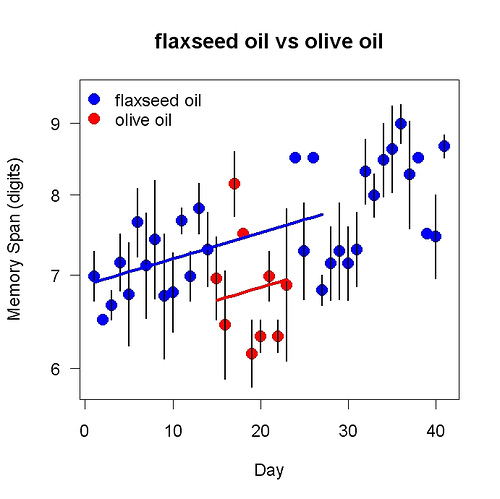Several weeks ago I compared flaxseed oil (high in omega-3) and olive oil (low in omega-3). I’ve posted results from a balance task and a memory-scanning task. I also measured what is called digit span — the number of digits you can remember perfectly after one presentation. It is a widely-used measure of short-term memory. In my test, the digits were shown one by one for 1 second each on my computer screen. A few seconds after the last one, I had to write them down in order. If I was 100% correct the next trial had one more digit than the last. If any of my answers were wrong, the next trial had one fewer digits than the last. The test continued until there had been six “reversals” — right answers after one or more wrong answers, or wrong answers after one or more right answers. The measure of performance is the mean of the six reversal points. It estimates the list length at which I have a 50% chance of being correct.
Here are the results:

Performance was better with flaxseed than olive oil (t = 2.5, one-tailed p = 0.01). The difference — the omega-3 effect, you might say — was quite a bit weaker than what I saw with balance and memory scanning. My guess is that the relative insensitivity of this task comes from two features: 1. Binary measures. Each trial is measured right or wrong; whereas with the memory-scanning and balance task, each trial yielded a duration (many-valued). 2. Slow. Each trial takes about 30 seconds; it takes about 10 minutes to get six reversals.
Guide to my omega-3 posts.






